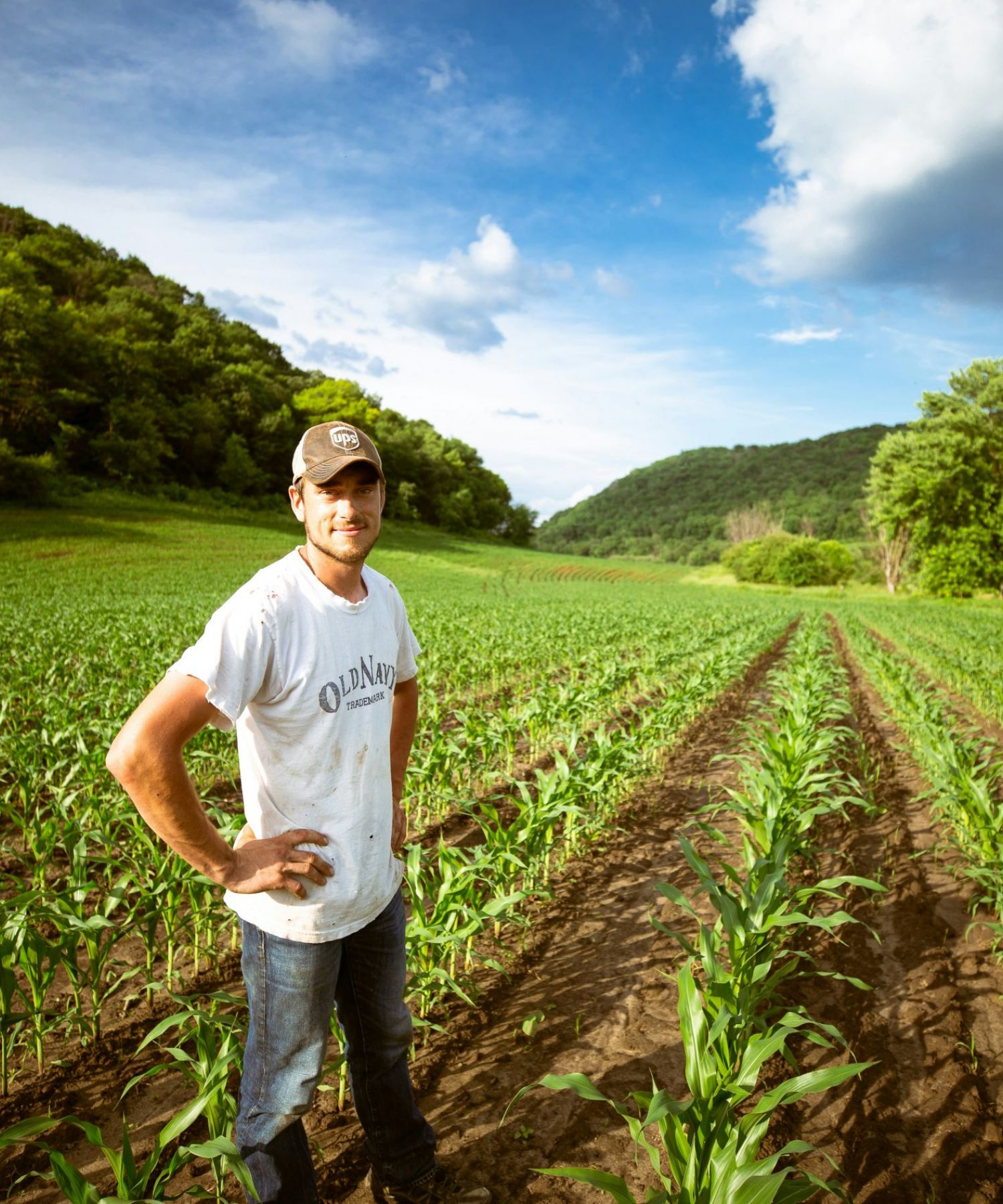Securing the Future of Farming
The image of agricultural careers among young people in Europe
A significant “young farmer problem” is currently facing the agricultural industry, with a recent study highlighting that 35% of European farmers are 65 and over, while only 11% are under 40¹. This demographic imbalance poses serious implications for both future food security and climate resilience, underscoring the urgent need for new talent to secure the future of European agriculture. To better understand and address this critical issue, we’re excited to announce the release of our new study exploring how technological, sustainability, and political developments influence young people’s perceptions of agricultural careers.

We developed this study for EIT Food’s Consumer Observatory, supported by the European Institute of Innovation and Technology, a body of the European Union. This delves into the motivations that draw young people towards a career in agriculture, as well as the barriers that prevent them from entering the industry.
Key Motivations And Persistent Misconceptions
This research reveals that young people are drawn to agricultural careers for several key reasons: a desire to make a positive impact on food security and climate change, the appeal of a scientific career driven by modern agriculture’s reliance on technology, and the significant draw of entrepreneurship (valuing being their own boss and undertaking diverse work). An idealistic view of working outdoors and being close to nature also attracts some.
However, even after learning more about the sector, persistent misconceptions emerged. Many continued to associate agriculture with exhausting manual labor, long hours, and poor work-life balance, making it seem incompatible with modern lifestyles. Interestingly, while some saw potential in high-tech farming, others felt it made agriculture seem unnatural or too costly. A common assumption was also that working in agriculture requires living in isolated rural areas, overlooking urban or tech-driven roles. These findings suggest that changing farming’s image demands better storytelling and visible examples that break traditional stereotypes.
Adressing The Challenges
Despite these motivations, young people frequently perceive farming as a profession lacking job security and adequate remuneration for the demanding physical labor involved, and often feel that farmers are undervalued. Concerns about uncertainty, poor compensation, and a lack of government support are substantial barriers, even for those attracted to entrepreneurship. Yet, presenting careers in agricultural services, like consultancy without direct risk, generated positive responses, indicating that perceptions of instability are a key hurdle. Some participants shifted their views, especially when exposed to alternative career narratives, e.g., high-tech or urban farming, showing that they found the sector more relevant when it aligned with their values of sustainability, innovation, and meaningful work.
More Data And Insight Is Needed
There is an urgent need for further research into agricultural career perceptions. We‘re actively seeking collaborators for a quantitative study to quantify which factors matter most to different groups of prospective farmers. This would enable more targeted and effective communication and engagement with young people, and provide a crucial benchmark to assess long-term impact.
The “young farmer problem” isn’t a distant threat; it’s an immediate challenge. Europe’s future food security depends on removing barriers for young people to enter the agriculture profession. Policymakers, educators, and industry actors must act now to acknowledge the value of farmers to society and introduce policies that provide long-term support for the agriculture sector.
These are just some of the things discussed in this study. To gain further detailed information and explore all the findings and recommendations, please refer to the full study here:
About EIT Food Consumer Observatory
Powered by EIT food, Consumer Observatory brings together research and consumer insight organizations to produce bespoke research and unique insights from the agrifood community. Its goal is to maximize the impact of consumer insights on agrifood topics, providing greater knowledge and guidance to stakeholders, educators, policymakers, and businesses, ultimately driving informed, consumer-focused change in the agrifood system.
Find out more about the Consumer Observatory.
EIT Food is the world’s largest and most dynamic food innovation community, dedicated to accelerating innovation for a future-fit food system that provides healthy, sustainable food for everyone. Supported by the European Institute of Innovation and Technology (EIT), an EU body, EIT Food invests in projects, organizations, and individuals aligned with its goals. It unlocks innovation potential in businesses and universities, and creates and scales agrifood startups to bring new technologies and products to market. EIT Food also equips professionals with essential skills and prioritizes consumers, aiming to build trust by reconnecting them with their food’s origins. As one of nine innovation communities established by the EIT, EIT Food plays a key role in driving innovation and entrepreneurship across Europe.
Reference:
- Borda, Á. J., Sárvári, B., & Balogh, J. M. (2023). Generation Change in Agriculture: A Systematic Review of the Literature. Economies, 11(5), 129. https://doi.org/10.3390/economies11050129
How can we help you?
We can help you to optimise your product or service, by offering real feedback from real consumers. Find out more here.
We believe that understanding consumers is key to making the food system more sustainable. Successful innovation and impactful communication require a solid foundation of consumer insight.
We are the insights partner of choice for food companies and non-profits that aim to have a positive impact on society and our planet. Together we empower consumers to make food choices that are good for them as well as for the planet.
The Hague Tech - Waldorpstraat 5 - 2521CA - The Hague
(+31) (0)70 2042314 - Info@futureoffood.institute
Contact
Fill in this form and we'll be in touch shortly!
Newsletter
Do you want to receive a monthly dose of insights, opinions and events? Please subscribe to our newsletter.








